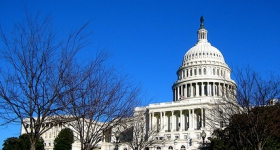People who are being recognized for their life's work, athletic and otherwise (and their expository abilities), are now simultaneously being charged -- flag football-style -- with protecting the erstwhile symbol of goodwill. There was a great photo in the NY Times where an Asian woman in a wheelchair, missing a leg no less, fiercely guards the torch she carries while a bodyguard blocks a tackle. If anything were instant propaganda, this would be it.
Journalist and all-around community rockstar Helen Zia, who will run in San Francisco's torch relay tomorrow, notes in an SF Gate editorial that "China is not a monolith," and "blanket condemnations of China and its people" find glass-house parallels in American policy.
Still, the political brouhaha is distinctly confusing. I am not Chinese American, and I am pro-Tibet. The choice of Beijing as a venue is clearly a questionable one given its persistent, heavy air pollution. The environmental solutions do not promise much beyond the short-term. The censorship and resolutely positive message spins do nothing but positively turn my gut. Part of me itches to join in on the protests tomorrow, but the irony behind people wanting to wrest away an Olympic torch makes me want to stay at work.
What to feel aside from "how sad" and "how weird"?









Comments